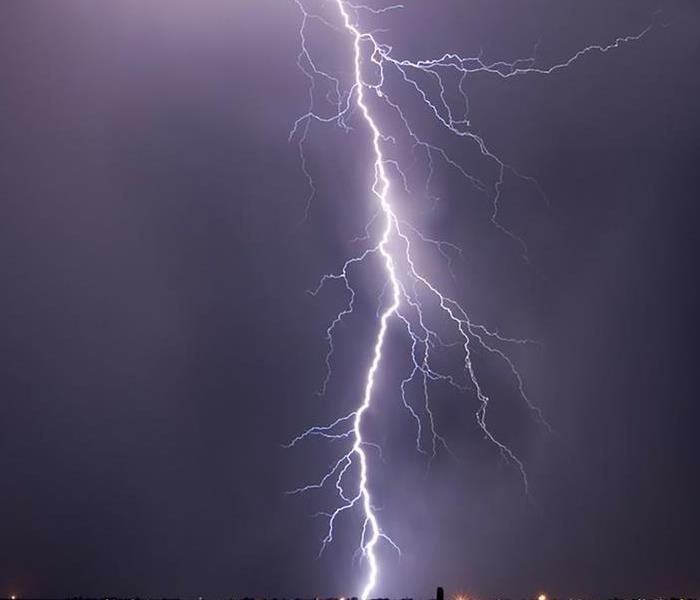Storm Preparations
5/10/2018 (Permalink)
Facts about Thunderstorms
- They may occur individually, in clusters or in lines.
- Some of the most severe occur when a single thunderstorm affects one location for an extended time.
- Thunderstorms typically produce heavy rain for a brief period, anywhere from 30 minutes to an hour.
- Warm, humid conditions are highly favorable for thunderstorm development.
- About 10 percent of thunderstorms are classified as severe – one that produces hail at least an inch or larger in diameter, has winds of 58 miles per hour or higher or produces a tornado
Facts about Lightning
- Lightning’s unpredictability increases the risk to individuals and property.
- Lightning often strikes outside of heavy rain and may occur as far as 10 miles away from any rainfall.
- “Heat lightning” is actually lightning from a thunderstorm too far away from thunder to be heard. However, the storm may be moving in your direction.
- Most lightning deaths and injuries occur when people are caught outdoors in the summer months during the afternoon and evening.
- Your chances of being struck by lightning are estimated to be 1 in 600,000 but could be reduced even further by following safety precautions.
- Lightning strike victims carry no electrical charge and should be attended to immediately.
Know the Terms
Familiarize yourself with these terms to help identify a thunderstorm hazard:
Severe Thunderstorm Warning- Issued when severe weather has been reported by spotters or indicated by radar. Warnings indicate imminent danger to life and property to those in the path of the storm.
Severe Thunderstorm Watch- Tells you when and where severe thunderstorms are likely to occur. Watch the sky and stay tuned to NOAA Weather Radio, commercial radio or television for information.





 24/7 Emergency Service
24/7 Emergency Service
